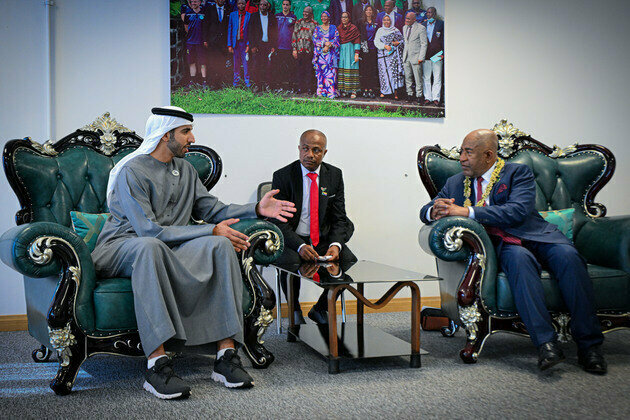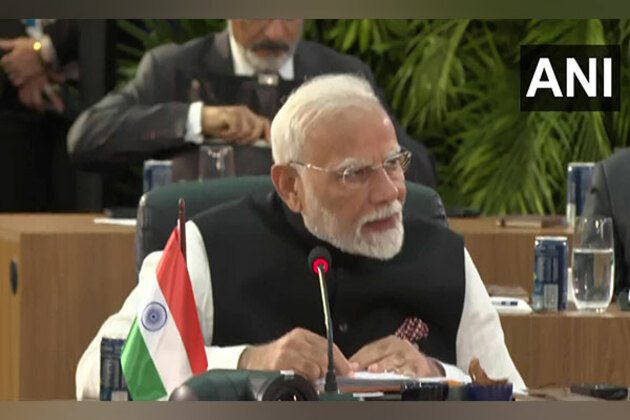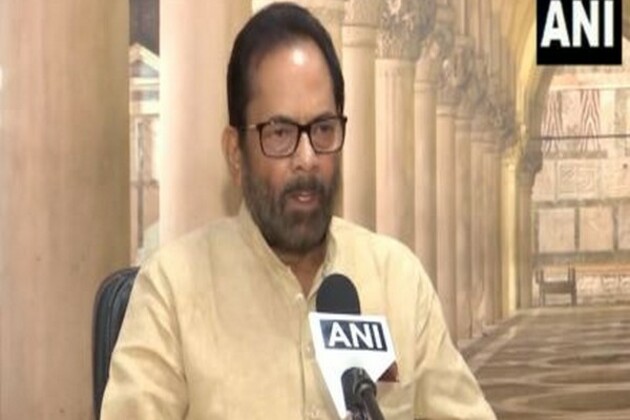6 potential solutions to ease the COVID-19 news media crisis
The Conversation
05 Aug 2020, 20:10 GMT+10

The ongoing, coronavirus-fuelled media crisis has in fact been in the works for more than 30 years. It is not a new phenomenon.
In the early 1990s, we saw mergers of major radio networks. The advent of the internet and cable news outlets during the 1990s changed the game and challenged the dominance of news agencies, since audiences had access to live events in real time all the time. The emergence of social media in the 2000s and 2010s continues to transform the role of the media today.
The media in crisis is a constant; it was simply amplified by COVID-19. But it's still taken a toll.
More than 135 Canadian media organizations have closed up shop since March 2020. In March and April, 2,000 positions were cut across the country, according to the Canadian Association of Journalists.
In the United States, 36,000 journalism jobs have been lost since the beginning of the pandemic, the New York Times reported in April. Poynter has been keeping a running tally of this ever-growing number.
The causes of the enduring media crisis worldwide are known: a dramatic drop in advertising revenue for media to the benefit of Google, Apple, Facebook, Amazon and Microsoft, who now share the pie and pay little or no taxes in Canada. But there was also a reluctance to embrace technology by American news organizations, and those in Canada too. The digital shift happened too late in many cases.
News media underestimated the role of smartphones: 94 per cent of young readers consume news on their phones or through social media, according to the latest research from the Quebec-based CEFRIO research center.
News audiences are also more fragmented than ever before, with an increasing number of specialized news sources, whether it's sports, finance, lifestyle, etc.
This overabundance of information has caused some citizens to tune out, overwhelmed by the avalanche of news.
Some successful models emerging
Nonetheless there are some glimmers of hope. Groupe Capitales Medias filed for bankruptcy in 2019 in Quebec, but its six newspapers, representing about half of the daily newspapers in the province, were revived as a non-profit co-operative in 2020.
There are other business models working well in the country, like the one used by Montreal-based Le Devoir, based on paid subscriptions, advertising and donations. The small newspaper launched its paywall in the 1990s, specialized its content (politics, culture, social issues) and made a major digital shift. This resulted in a $1.6 million surplus in 2019.
Are there other possible solutions for solving the crisis in Canada and elsewhere?
Six potential solutions
Here are some suggestions:
The financial media assistance promised by Canada's federal government ($600 million over five years) has still not arrived, two years after it was announced. That's shameful. Provincial aid to media organizations - $250 million over five years - is already being distributed in Quebec. Government funding remains essential to preserve democracy and fight news deserts.
Content monetization: Local media have no other choice but to set up paywalls on their sites and sign piecemeal agreements with Apple News, Facebook and Google News for better revenue-sharing. News organizations also need to attract philanthropic donors and pursue crowd-funding to finance specific news projects that will benefit readers.
Diversification of production is necessary. Content needs to be diversified with specialized newsletters, podcasts, videos, event and conference management and brand content that could replace traditional advertising.
Value-added content: Media organizations should let news agencies like QMI and The Canadian Press deal with daily breaking news and focus now on long-form journalism, investigative reporting, features, interviews, newsletters, explanatory content, etc. This will force media organizations to value data-driven, investigative and solutions journalism. Now more than ever, citizens want to read content that's thoughtful, important or hopeful.
Tackling fake news and distrust in the media is paramount. There needs to be an active push against the prevailing public cynicism by employing more fact-checking, possibly with the help of artificial intelligence. Media organizations also need to reconnect with their audiences, young people in particular, by covering a wider range of topics. In classrooms, we must set up civic media education seminars to demystify the work of journalists and the media.
There is a severe lack of diversity in newsrooms across Canada, especially Quebec. There are not enough journalists from racialized groups and Indigenous communities. There will need to be a profound change on this issue all across Canada so that news organizations reflect the country's population and report on the issues that matter to diverse audiences.
Read more: Newsrooms not keeping up with changing demographics, study suggests
Reinvention needed
There's no question media organizations must reinvent themselves, and have needed to both before COVID-19 and today.
But the situation is not desperate. Traffic on news sites has been up sharply since the beginning of the pandemic, but it's not well-monetized.
News organizations must go where readers are: on their phones. News sites have to be more user-friendly in terms of design - the recent success of the myFT app from the Financial Times in this regard is a great example of what works.
Whether there will be media mergers or other closures this year, or in 2021, remains to be seen. But in the meantime, we can make better use of technology by using automation for certain content (sports and financial news; translations) in order to free up newsroom reporters to focus on value-added journalism.
Hopefully alliances and collaborations can also be formed among local media outlets across the country and national news organizations that could entail sharing content or other technology-based partnerships. A current example is the Local Journalism Initiative in Canada, operating via The Canadian Press to support local and civic journalism for under-served communities.
There is nothing to lose and everything to gain in working hand and hand, together, to reimagine journalism in Canada. COVID-19 has simply reminded us to make it a top priority.
Author: Patrick White - professeur de journalisme , UniversitУТЉ du QuУТЉbec УТ MontrУТЉal (UQAM) 
 Share
Share
 Tweet
Tweet
 Share
Share
 Flip
Flip
 Email
Email
Watch latest videos
Subscribe and Follow
Get a daily dose of Kenya Star news through our daily email, its complimentary and keeps you fully up to date with world and business news as well.
News RELEASES
Publish news of your business, community or sports group, personnel appointments, major event and more by submitting a news release to Kenya Star.
More InformationAfrica
SectionTurning tragedies into ten-fer: Years of toil, tragedy, practice behind Akash Deep's record-breaking Birmingham outing
Birmingham [UK], July 7 (ANI): Indian pacer Akash Deep mesmerised one and all with a ten-wicket haul in a critic-silencing, era-defining...
Blue Jays sweep Angels, win eighth in a row
(Photo credit: Dan Hamilton-Imagn Images) Bo Bichette homered, Kevin Gausman struck out nine in 5 2/3 innings and the Toronto Blue...
BRICS outperforming G7 Putin
The groups combined GDP is $20 trillion greater than that of the Western bloc, the Russian president has said BRICS has already outstripped...
On behalf of UAE President, Shakhboot bin Nahyan attends 50th independence anniversary ceremony of Union of the Comoros
MORONI, 6th July, 2025 (WAM) -- Sheikh Shakhboot bin Nahyan Al Nahyan, Minister of State, participated on behalf of President His Highness...
Wiaan Mulder smashes 264 on captaincy debut, breaks South African record in Bulawayo
Bulawayo [Zimbabwe], July 6 (ANI): South Africa's Wiaan Mulder produced a historic knock on his Test captaincy debut, scoring an unbeaten...
PM Modi attends 17th BRICS summit; highlights neglect of Global South, calls for reform of global institutions
Rio de Janeiro [Brazil], July 6 (ANI): Prime Minister Narendra Modi, while addressing the 17th BRICS Summit on Sunday, underscored...
World
SectionUS debt limit raised, but spending bill fuels fiscal concerns
NEW YORK CITY, New York: With just weeks to spare before a potential government default, U.S. lawmakers passed a sweeping tax and spending...
Methionine Restriction Could Extend Lifespan, Boost Health
VILNIUS, Lithuania – A growing body of research suggests that selectively restricting a single nutrient in our diet could have profound...
BRICS outperforming G7 Putin
The groups combined GDP is $20 trillion greater than that of the Western bloc, the Russian president has said BRICS has already outstripped...
BRICS outperforming G7 - Putin
The group's combined GDP is $20 trillion greater than that of the Western bloc, the Russian president has said ...
Modi calls on BRICS nations to condemn terrorism
The summit declaration denounced the recent terrorist attack in Kashmir that triggered a military escalation between India and Pakistan...
"Bravehearts of Indian Armed Forces damaged, destroyed and dismantled "territory of terrorism": Mukhtar Abbas Naqvi
Prayagraj (Uttar Pradesh) [India], July 6 (ANI): Former Union Cabinet Minister and senior BJP leader Mukhtar Abbas Naqvi on Sunday...












